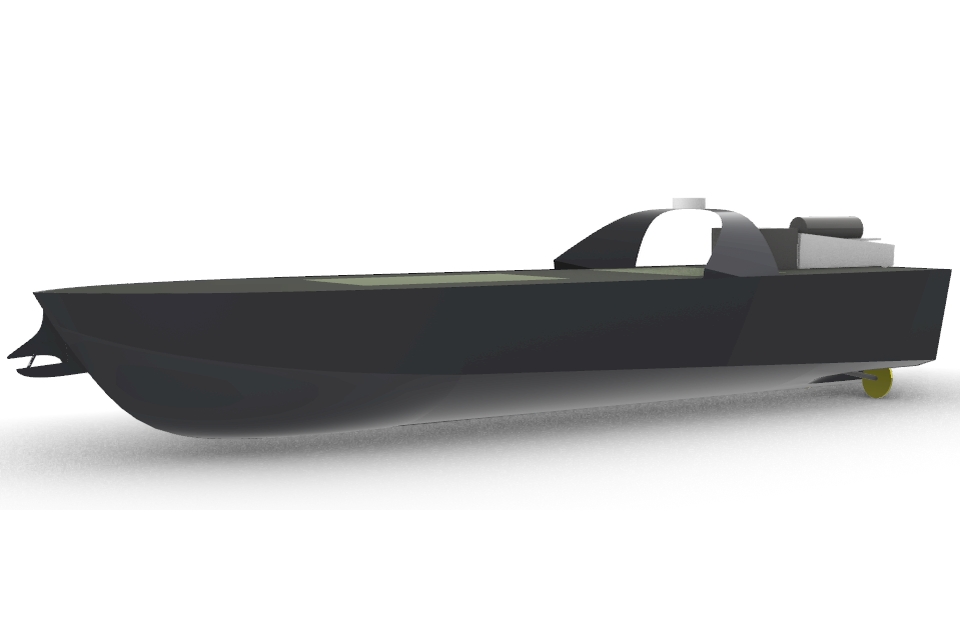‘A relevant and unique contribution to the operational deployment of our Royal Navy.’ This is how the jury characterises Saskia Alberts’ research into the use of an unmanned unit in anti-submarine warfare. Her Unmanned Dipping Sonar Boat design earned her the Van Hengel-Spengler Award 2022.
The award was presented tonight (7 November) at the Maritime Awards Gala at De Doelen in Rotterdam in the presence of about 700 maritime professionals.

The Royal Navy needs an Unmanned Dipping Sonar Boat (UDSB). This should provide a persistent stand-off submarine detection capability with greater endurance than the NH-90 helicopter with dipping sonar currently used to protect fleet compounds.
Alberts’ UDSB includes issues such as radiated sound, stability, persistence, maintenance and launch and recovery capabilities. The UDSB is one of the first of its kind and complexity. The jury was impressed that, within the constraints of this operational deployment, Alberts found entirely new ways to further optimise anti-submarine warfare.
For the UDSB, Saskia Alberts, maritime engineer at the Defence Materiel Organisation, created a detailed concept design for an unmanned vessel with dipping sonar focusing on endurance, sonar and boat deployability, safety and usability. The UDSB can operate continuously forward for over four days in a sprint and drift scenario with sprint speeds well above 30 knots in ambient conditions in the North Atlantic.
The UDSB is the first design that can operate autonomously offshore with dipping sonar for extended periods of time. By deploying the UDSB for forward detection, a more persistent detection capability is created, providing maritime units with better protection in more cost-effective ways compared to the deployment of an NH-90 helicopter.
Also read: Dutch Navy’s Van Hengel-Spengler Award goes to ballistic missile defence research
Other nominees
The other nominees for the Royal Netherlands Navy Van Hengel-Spengler Award 2022 are:
- LTZ3 (TD) Tom Wien with research on “Thermal runaway at lithium-ion batteries”.
- Tom de van der Schueren with his research “Digital Search for the Optimal Engine Room”.
Watch a video covering all three nominees (in Dutch) below.
Maritime RNLN Van Hengel-Spengler Award
To be eligible for the award, a student employed by the Royal Netherlands Navy (RNLN) must carry out research as part of his or her studies, the results of which lead to new insights, concepts or innovations that contribute to better operational deployment of naval units. The RNLN Van Hengel-Spengler Award is in keeping with the innovative nature of the RNLN and was first presented in 2013, when the navy celebrated its 525th anniversary.
The award is named after two naval officers who, in the early twentieth century, laid the foundations for encrypting messages via a rotating machine. This idea gave rise to the famous German “Enigma” machine, which in turn led to efforts on the English side to break the encryption. The English scientist Alan Turing developed the concepts of a computer on this basis.
Also read: And the nominees for the Dutch Maritime Awards 2022 are…








